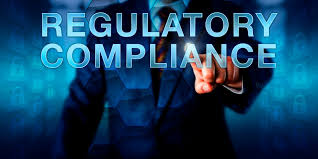Videoconferencing and Export Controls
Janet Longo, Regulatory Compliance Analyst at The Volkov Law Group, joins us for a posting on videoconferencing and compliance export controls. Janet can be reached at [email protected].

As the Covid-19 virus is proliferating, so is the practice of conducting business through videoconferencing from home. While many commentators have discussed the serious data privacy and security problems associated with video conferencing, we’ve been thinking about the export control implications for our clients, including telecommunications and electronics companies, chemical companies, government contractors, drug, medical device and biotech companies and any entity that exports controlled products and technology.
To be sure, some workers regularly used videoconferencing long before we all moved into our living rooms and home offices. But for new users, videoconferencing presents a new and distinct opportunity for an unexpected export control violation to occur. The exposure of controlled technology or information to a single videoconference participant sitting in front of a computer screen in a foreign country, or to a foreign national seated at a computer in the U.S. (a “deemed export”), can cause a company to violate U.S. export regulations, leading to possible criminal and civil penalties, reputational damage, revocation of export licenses, debarment, and/or incarceration for individuals involved in the violation.

A surprising number of products and technologies are controlled for export under the Export Administration Regulations (“EAR”) and the International Traffic in Arms Regulations (“ITAR”). And the government interprets the release of controlled technology and information broadly, to include a simple visual inspection or view of the controlled data. It can be very easy to share or display a drawing or other document that contains controlled technology or technical data during a videoconference through screen-sharing. And in the absence of face-to-face discussions, it may be more tempting than ever to use a visual aid. Yet, now, everything seems more relaxed, and export requirements may be a thought your employees left at the office.
Before holding drawings, technical specifications, plans, blueprints or similar documents up to the screen or sharing your screen with others, ensure that you have an export authorization for the release of technology to the non-U.S. person sitting in front of the other computer screen. This authorization may be in the form of a U.S. Government agency issued export license, a license exception or exemption, or a general license. Companies that export controlled products and technology should consider issuing guidelines regarding appropriate use of videoconference and screen-sharing technology for remote workers. Companies alternatively should consider sending remote workers a reminder that they must follow their organization’s procedures for exporting technology and technical data.
In sum, export control violations generally are strict liability, meaning that an individual need not intend to violate the law and in fact need not even know that the released technology was controlled. Yet, the dramatic increase in videoconferencing and screen-sharing by new users without IT support has made it easier and more likely that someone may unwittingly disclose controlled technology. Employees should be properly trained and made aware of the risks.

If you are uncertain as to whether you have controlled technology or need an export license, or if you have any question as to how the above discussion might apply to your company, please do not hesitate to contact any one of us at The Volkov Law Group.















